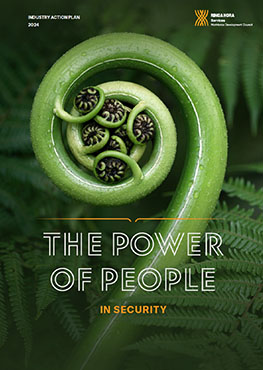
This year, our visual theme for each of the Industry Action Plans has been developed with a Te Ao Māori context in mind.
For the Security industry, we lean into the symbolism of the koru — the circular shape of the koru wraps around itself, symbolising the idea of safeguarding and looking after one’s own, much like how security measures are designed to protect and nurture.

There are diverse employment opportunities for workers in the Security industry. For some individuals, the Security industry will be their first job and first experience in the workforce. While for others, the industry offers a different line of work where they can bring their wealth of previous knowledge and skills to apply in a different context. The security industry is increasingly becoming an integral part of the Service sector. Security staff are often the first point of contact between customers and businesses. A well skilled security workforce has the potential to enhance the overall customer experience.
Security professionals can enhance their skills and qualifications through training programmes and certifications, such as the Certificate of Approval (CoA). Through this training, workers can choose to specialise in any number of areas, such as event security, executive protection, cybersecurity, and risk assessment. Many of the skills gained are transferable in nature, allowing easy transition into other careers.
The Security industry in New Zealand plays a crucial role in maintaining public safety and protecting businesses from various threats. There is a wide range of roles within the industry, including security guards, surveillance operators, alarm technicians, and security consultants. Security professionals often serve as the first point of contact with customers as well as the first line of defence in emergency situations.

Growth in the Security industry has been rapid, and projections show that the industry will continue to grow in the coming years. This is due to a steady demand for security services, motivated by a range of factors such as increasing retail crime. There is also an increasing need for security at public premises such as hospitals and government offices, and growing demand for security in “crowded spaces”. As a result, the Security industry is critical to the safe and effective operation of numerous other industries. This means that the situations security professionals are managing are becoming more complex, in more niche and specialised contexts, which increases the skill level and training required. Examples of necessary skills include de-escalation, cultural competency in the appropriate context, understanding how to identify risks and threats, and technological expertise.
Despite the rapid increase in demand for Security professionals and the increased skill level needed for the profession, there has been a 16% decline in these qualification enrolments since 2021. There are two NZQF qualifications which cover Security. Industry reports that these qualifications are critical but not fit-for-purpose anymore. The Security Training and Professional Development Special Interest Group, made up of the NZ Security Association, major employers, providers and Ringa Hora, is actively reviewing these qualifications.

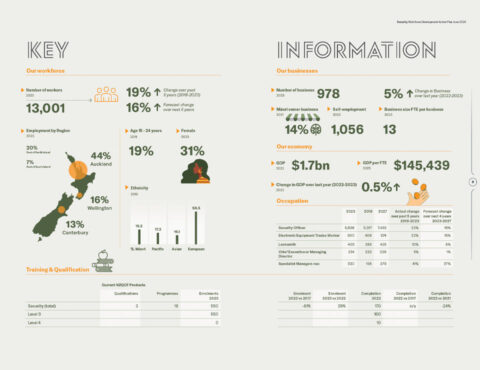
Explore Security industry workforce demographic, business, and economy statistics, and education and training data.
To help us reach the future state, we need to understand and tackle the challenges that the Security sector faces, while also seizing the opportunities that already exist or are on the horizon. We’ve heard that several factors are having a significant impact on the Security industry, including rising crime rates and risks posed to workers. These challenges are not new, as we have seen these trends continue over recent years; however, they remain a current focus for the industry.





To support the Security industry in fulfilling its role effectively, legislative and regulatory tools must be continuously reviewed and updated to reflect changing security threats and best practices. This includes clear guidelines on safety standards, training requirements, use of force protocols, and accountability measures to ensure that security providers operate responsibly and ethically.
Collaboration among and between industry stakeholders, regulatory agencies, and law enforcement is essential to comprehensively address security challenges and foster a safer environment for all.

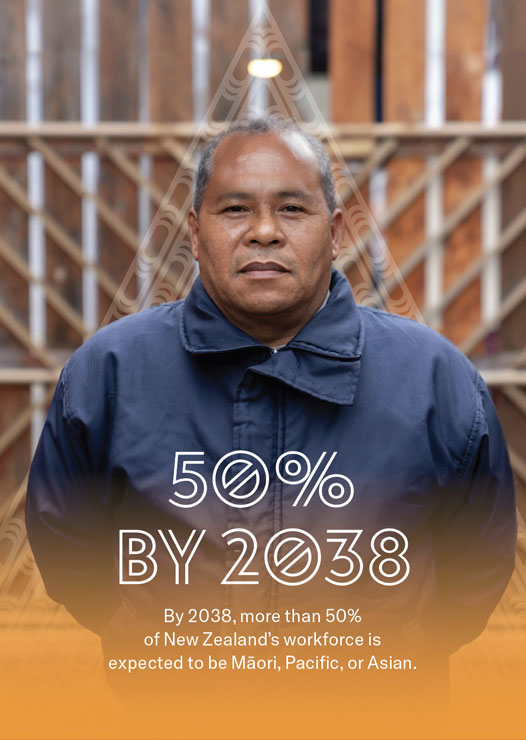
This has implications for the Service sector and more specifically for the Security industry. It will change who services are delivered for and by. This means it will become increasingly important for industry to reflect New Zealand’s population in its workforce and customers, and for that workforce to be more culturally aware. This could help industry to successfully attract and recruit more people into the workforce, ensure that those workers feel safe and valued in their roles, and help them to promote the customer experience and loyalty.
Each of these groups makes a unique contribution to the Service sector, and businesses will benefit from recognising this contribution and being responsive to their individual needs. With current labour shortages, developing a committed and responsive relationship with these groups will help realise the proven economic and social benefits for employers, the workforce, and the wider communities in which services are delivered.
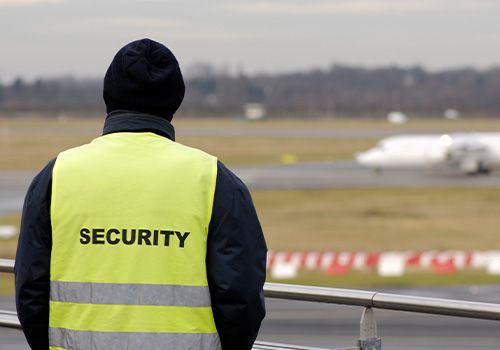
Approximately 19% of the Security industry is Māori. This is higher than the overall New Zealand workforce percentage of 13%.
Accessibility of training
Many Māori in the workforce have industry experience and competency within their roles and are also interested in or are pursuing STEM training and associated qualifications, including literacy and numeracy qualifications. However, the language and related supports for this training is not always delivered in a way that resonates with Māori learners and workers. It is important for this training and upskilling to be tailored to Māori needs, as these can be important prerequisites to pursuing higher level credentials and other career development opportunities.
In addition, the cost of this training can be a barrier for people being able to gain licenses. There are limited credentials recognised outside of the industry so this can also make it difficult for many to progress in their career journey in other fields also. This means many Māori in the industry struggle to progress within this career. In addition, training can be distributed unevenly throughout the motu where many Māori are based, making it more difficult for many to access.
Understanding the needs of the workforce
Security has one of the highest proportions of Māori working in the industry. It is important for the industry to understand the needs of their Māori workers and appropriately support, upskill and develop them if they want to be able to continue to attract and retain their staff.
This includes being culturally competent, providing cultural competency training for employers and managers to better understand and support staff, and ensuring that training is accessible and resonates appropriately with their staff.
Health and safety
Security workers are often on the frontline, facing aggression, and are required to de-escalate conflict. This is especially important, given the diverse needs for de-escalation and conflict resolution. As a result, it is important to promote cultural awareness, provide pastoral care and support or explore a mātauranga Māori approach to inform strategies for strategies that inform de-escalation and conflict resolution.
Recognition and purpose
For many Māori in the security workforce, being recognised and valued within their roles is just as important, if not more important, than training and qualifications. Being able to effectively do their mahi provides purpose, and recognising this is critical to ensuring mana-enhancing communication practices. This could include better recognition of workers’ skills and experience, outside of traditional qualifications. This will ultimately support attraction and retention within the industry.

Approximately 17% of the Security industry is made up of Pacific workers. This is higher than the overall New Zealand workforce percentage of 6.5%.
Understanding your workforce
The Security industry benefits from a significant number of Pacific workers, some of whom are second-language English speakers. This aspect is often not considered for training material and qualification requirements, particularly for literacy and numeracy, as these are frequently written in a way that does not resonate with Pacific workers. In order for Pacific workers to pursue higher-level credentials and leadership roles, literacy and numeracy training opportunities in the industry need to be more accessible. To fully support Pacific growth, it is essential that training materials are tailored to meet individual needs. By understanding and addressing the specific needs of Pacific workers and offering additional support such as pastoral care, the industry can effectively support and retain this workforce.
Supporting the needs of the workforce
To progress within the industry, security workers are required to obtain a license, which is a key step toward advancing their careers. However, the upfront costs of the licensing process are often covered by the workers themselves, which can create barriers to access. Increasing opportunities to make obtaining a licence more accessible and affordable, can empower Pacific workers to pursue higher-level credentials, enabling them to advance and continue contributing to the industry’s success.
Recognition and purpose
Pacific peoples in the industry bring valuable experience and competency to their roles. Recognising these skills beyond traditional qualifications is essential for ensuring that Pacific workers are truly valued and appreciated. By acknowledging and celebrating their contributions, the industry can support their career development and empower them to grow within their roles.

Productivity in business means being able to achieve, with fewer people. Businesses with high productivity are more resilient, adapt more easily to changes and promote growth and innovation. High business productivity per capita enhances well-being by increasing the nation’s income and our ability to produce and afford the goods and services that underpin a happy, healthy life.
What does productivity look like for Security?
The Security industry is a critical enabler for business success and ensuring the effective running of day-to-day operations. With the demand for security on the rise, many businesses are struggling to find enough personnel or afford additional staff in the context of recent labour shortages, wage changes and the economic environment. There is an increasing pressure for organisations to look at ways to do more with their existing workforce through proactive upskilling or adopting new practices. Based on research and industry insights – specific areas of focus include:
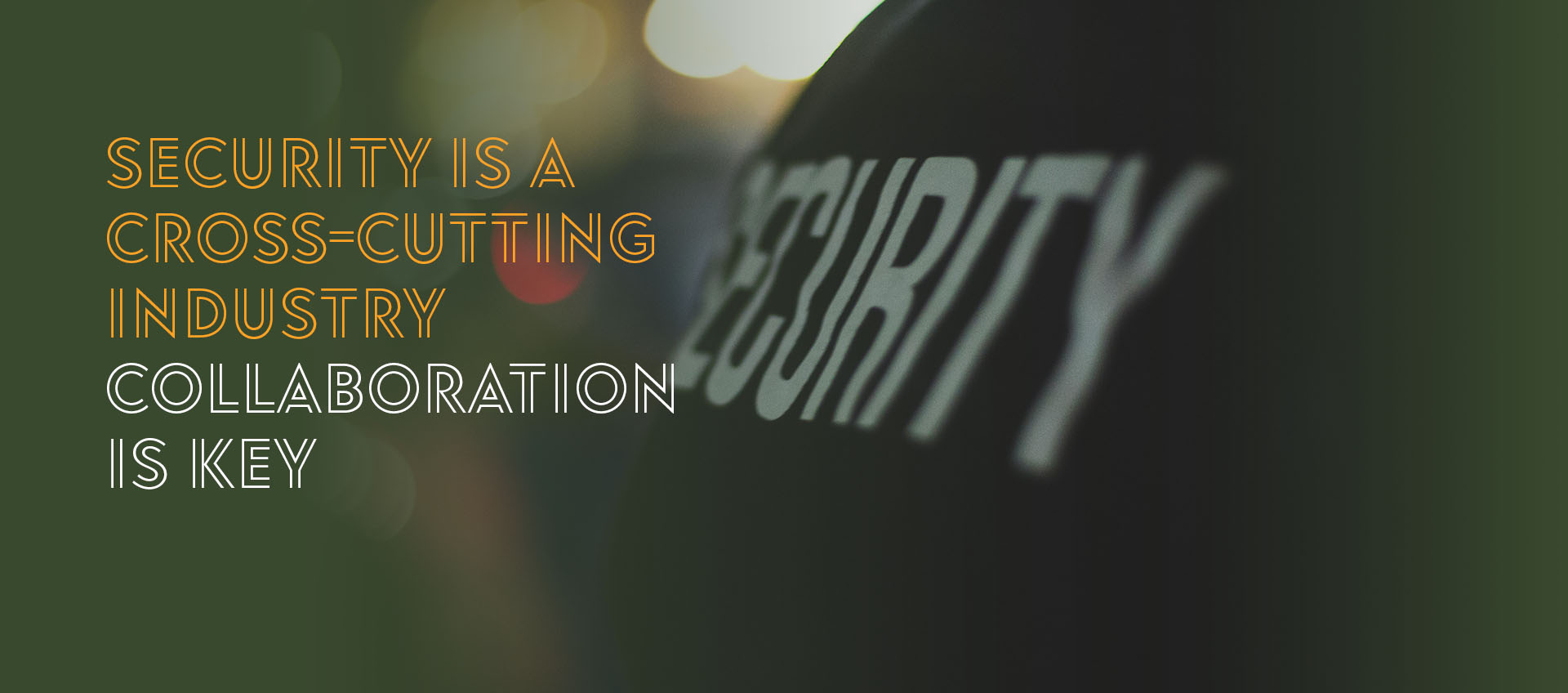
Security is a cross-cutting industry
The Security industry operates across a number of different industries including Retail, Hospitality, Healthcare, Tourism & Travel, and Aviation, among others. Additionally, many local authorities rely on security contractors to manage noise complaints, freedom camping issues, and animal control after hours. The industry works closely with these industries and Government with each having their own specific security context, needs and requirements. Many are facing recent and growing security challenges, making cross-industry collaboration crucial. It is increasingly important to support staff training and advocate to government for necessary legislative and regulatory changes.
Collaboration with the Retail Sector
The Security industry is being asked to serve dual purposes: on one hand the job is about keeping people and industry safe, but the other is about improving customer experience and enriching people experience when visiting the store. It is important to recognise that retail crime rates and violence are rising in New Zealand. Posing increasing health and safety risks to both retail and security employees, as well as to customers. In addition, this is impacting the financial sustainability of retail businesses and the economy at large.
Retail NZ has highlighted how rising retail crime affects perceptions of retail as a prospective workplace, with both retail and security roles being viewed as unsafe.
Both the Retail and Security industries are working together to address these issues as it is a prime focus for both. In 2023, Retail NZ published an in-depth Retail Crime Survey on the well-being and economic impact of rising crime. This survey identified that the overall cost of retail crime for the 12 months to August 2023 was just over $2.6 billion. Additionally, police figures released under the Official Information Act show that six retailers a day were assaulted at work, with nearly 150,000 crimes reported at retailers across the country in 2023.
Both industries are working together to improve de-escalation and conflict management training which supports kaimahi in emergency situations. In addition, both industries are collaborating with a number of different agencies to prevent incidents and help small businesses impacted by crime recover.
For example, the Police-led Retail Crime Prevention Programme has led to the installation of over 3,000 protective measures in retail stores, including CCTV, fog cannons, bollards, and roller doors.
Retail NZ and NZSA are also advocating for better legislative tools to enable recovery of stock and provide clear guidelines on safety standards, training requirements, use of force protocols, and accountability measures. These efforts aim to ensure that security providers operate responsibly and ethically.
Collaboration with the Health Sector
The Healthcare sector faces serious security challenges as healthcare professionals encounter a range of scenarios that frequently present security concerns. Violence and aggression are unfortunately common, with hospital security staff filing 23,000 reports of unsafe staffing between 2020 and 2023. During the same period, there were 22,870 reported incidents of violence, aggression, or harassment against staff—averaging more than 20 incidents per day nationwide.
The Healthcare sector faces serious security challenges as healthcare professionals encounter a range of scenarios that frequently present security concerns. Violence and aggression are unfortunately common, with hospital security staff filing 23,000 reports of unsafe staffing between 2020 and 2023. During the same period, there were 22,870 reported incidents of violence, aggression, or harassment against staff—averaging more than 20 incidents per day nationwide.
Additionally, security staff must have a thorough understanding of medical situations and the relevant Health and Safety (H&S) considerations. Toitū Te Waiora has announced a 2024 review of Health sector qualifications, including Health and Safety requirements for kaimahi providing security in the Healthcare sector (inclusive of Corrections).
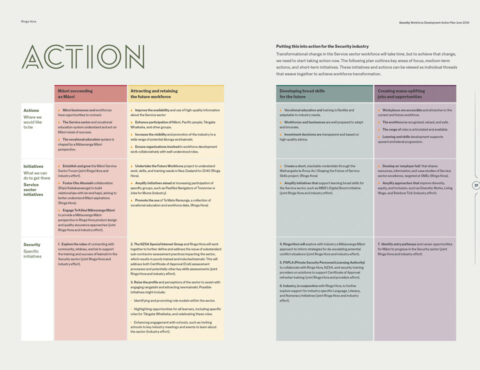
Transformational change in the Service sector workforce will take time, but to achieve that change, we need to start taking action now. This plan includes the key areas of focus, medium-term actions and short-term initiatives. These initiatives and actions can be thought of as individual threads that weave together to achieve workforce transformation.
To support progress with these actions, we have monitored what has been achieved in the last 12 months and what more will be delivered in future.